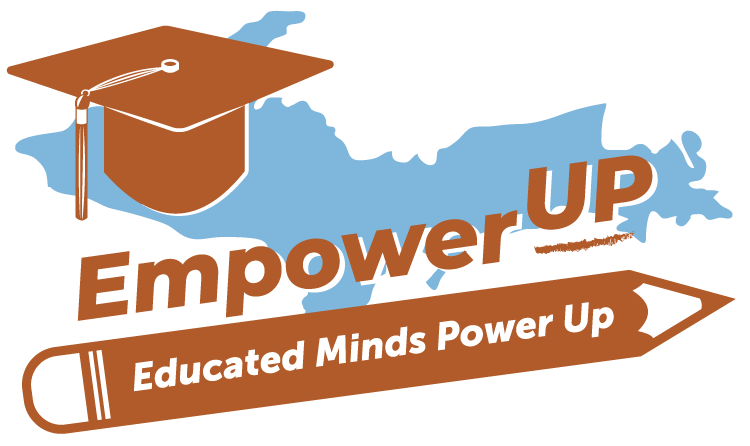A community college offers an Associate’s degree. They may offer programs similar to a trade school and are typically cheaper than universities. Degrees offered at community colleges can be used to enter the workforce after graduation or to obtain a Bachelor’s degree at a later date.
Why consider community college?
- Lower cost, faster start. Two years (or less) to employable skills; stay local to cut housing costs.
- “2+2” transfer is simple. Finish gen-eds, then transfer to a university via the Michigan Transfer Agreement (MTA). MTU recognizes the MTA for general-ed blocks. mitransfer.org+1
- Hands-on training that local employers hire from. Examples in the WUP: Nursing (Gogebic), Mechatronics/Robotics (Bay College West), Environmental Science (KBOCC). Gogebic Community College
- Stay close to home + smaller classes. Easier to work part-time.
- Pathways to apprenticeships. Use CC programs as pre-apprenticeship prep for electricians, HVAC, operators, etc.
How to apply and pay for community college
- Pick a local school & program.
- Apply online at the college site (usually free) → send a high school transcript.
- Complete the FAFSA (federal aid application) every year.
- Michigan Achievement Scholarship — Community College Guarantee: covers in-district tuition/contact hours + mandatory fees for eligible grads; + $1,000 bonus if Pell-eligible. Michigan
- Michigan Reconnect (tuition-free for adults): for ages 21–24 through summer 2025 (and 25+ ongoing); enroll at a community or tribal college; FAFSA required. Michigan+1
- Other help: local scholarships (foundations/tribal), work-study, employer tuition assistance, payment plans.
| Sector | Role & Credential | Typical Pay (Western U.P./MI) | Path & Local Notes | Investing Snapshot (10% / 15% @ 7%, age 20→65) |
|---|---|---|---|---|
| Health care | Registered Nurse (ADN → RN) | ~$60k–$80k (benchmark $70k) | 2–3 yrs at GCC; hospitals/clinics across the U.P. | At $70k: 10% = $583/mo ≈ $2.21M; 15% = $875/mo ≈ $3.32M |
| Health care | Radiologic Technologist (AAS) | ~$61k–$67k (bench $65k) | Hospitals and outpatient imaging centers. | 10% = $542/mo ≈ $2.06M; 15% = $812/mo ≈ $3.08M |
| Health care | EMT → Paramedic (cert → AAS) | ~$45k–$55k (bench $50k) | Fast entry via EMT certs at Gogebic/Bay; paramedic adds scope & pay. | 10% = $417/mo ≈ $1.58M; 15% = $625/mo ≈ $2.37M |
| Skilled trades & industrial tech | Electrician (apprenticeship; CC prep helps) | ~$55k–$70k (bench $65k) | Pre-apprentice/mechatronics at CC can help placement; OT can push higher. | 10% = $542/mo ≈ $2.06M; 15% = $812/mo ≈ $3.08M |
| Skilled trades & industrial tech | Mechatronics/Robotics Tech (AAS/Cert) | ~$58k–$70k (bench $65k) | Maintenance/automation roles at manufacturers & utilities (Bay West). | 10% = $542/mo ≈ $2.06M; 15% = $812/mo ≈ $3.08M |
| Skilled trades & industrial tech | Welding/Fabrication (Cert/AAS) | ~$50k–$60k (bench $55k) | Pipeline to fab shops, ship/vehicle upfitters, mines, mills; OT common. | 10% = $458/mo ≈ $1.74M; 15% = $688/mo ≈ $2.61M |
| Skilled trades & industrial tech | HVAC Tech (Cert/AAS) | ~$55k–$65k (bench $60k) | Residential/commercial service across the U.P. | 10% = $500/mo ≈ $1.90M; 15% = $750/mo ≈ $2.84M |
| Public works, energy & environment | Water/Wastewater Operator (Cert/AAS) | ~$50k–$60k (bench $55k) | Cities, townships, utilities; licensure ladders + on-call pay. | 10% = $458/mo ≈ $1.74M; 15% = $688/mo ≈ $2.61M |
| Public works, energy & environment | Power/Boiler/Stationary Engineer (AAS + licenses) | ~$65k–$85k (bench $70k) | Plants, mills, hospitals; strong shift differentials. | 10% = $583/mo ≈ $2.21M; 15% = $875/mo ≈ $3.32M |
| Transportation & logistics | CDL Truck Driver (cert + road test) | ~$45k–$60k (bench $50k) | Regional freight, timber, aggregate; base + per-diem/bonuses. | 10% = $417/mo ≈ $1.58M; 15% = $625/mo ≈ $2.37M |
| IT / business / early education | IT Support / Cyber Tech (AAS/certs) | ~$50k–$65k (bench $60k) | Local ISPs, hospitals, manufacturers, municipalities. | 10% = $500/mo ≈ $1.90M; 15% = $750/mo ≈ $2.84M |
| IT / business / early education | Business Admin / Accounting (AAS → BS) | ~$45k–$60k (bench $55k; higher w/ BS) | Start local; transfer to a bachelor’s for management roles. | 10% = $458/mo ≈ $1.74M; 15% = $688/mo ≈ $2.61M |
| IT / business / early education | Early Childhood Education (AAS) | ~$30k–$40k (bench $35k) | Preschools, Head Start, school aides; stack to bachelor’s later. | 10% = $292/mo ≈ $1.11M; 15% = $438/mo ≈ $1.66M |
Pay note: Ranges are typical for Western U.P./MI; actual offers vary by employer, certifications, overtime, and shift work. For state/area wage detail see the MI Bureau of Labor Statistics pages.
Investing math: Assumes saving 10% or 15% of gross pay monthly from age 20 to 65, earning a long-run 7% annual return (hypothetical, not guaranteed). Figures use rounded monthly contributions and the future value of a level monthly investment.
Abbreviations: ADN = Associate Degree in Nursing; AAS = Associate of Applied Science; CC = community college; GCC = Gogebic Community College; OT = overtime.
Local college links
- Gogebic CC — programs & transfer info; main campus Ironwood, Copper Country Center in Houghton. Gogebic Community College+1
- Bay College West (Iron Mountain) — programs incl. mechatronics/robotics, EMT, nursing. baycollege.edu+1
- KBOCC — business, early childhood, environmental science, Anishinaabe studies. kbocc.edu
